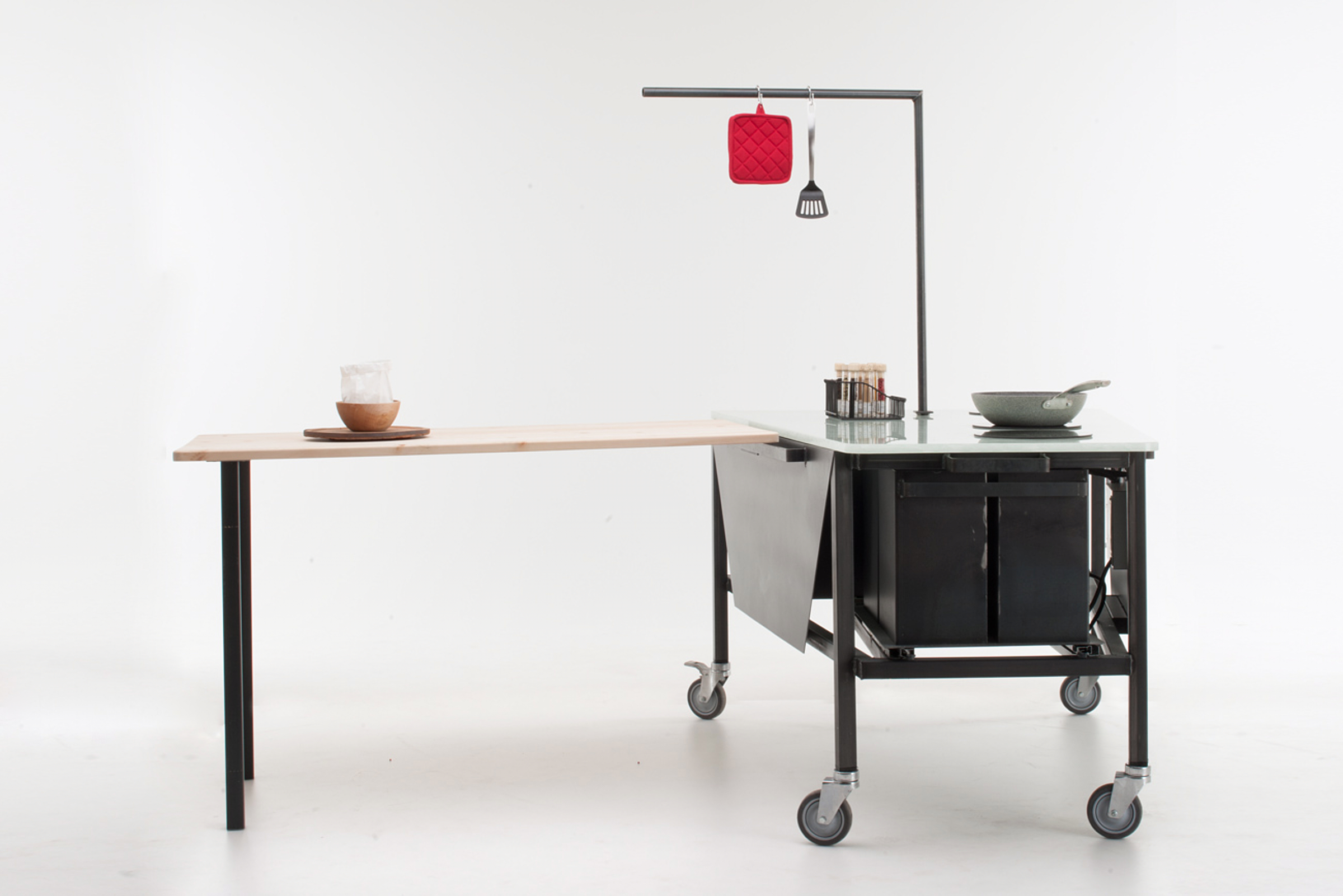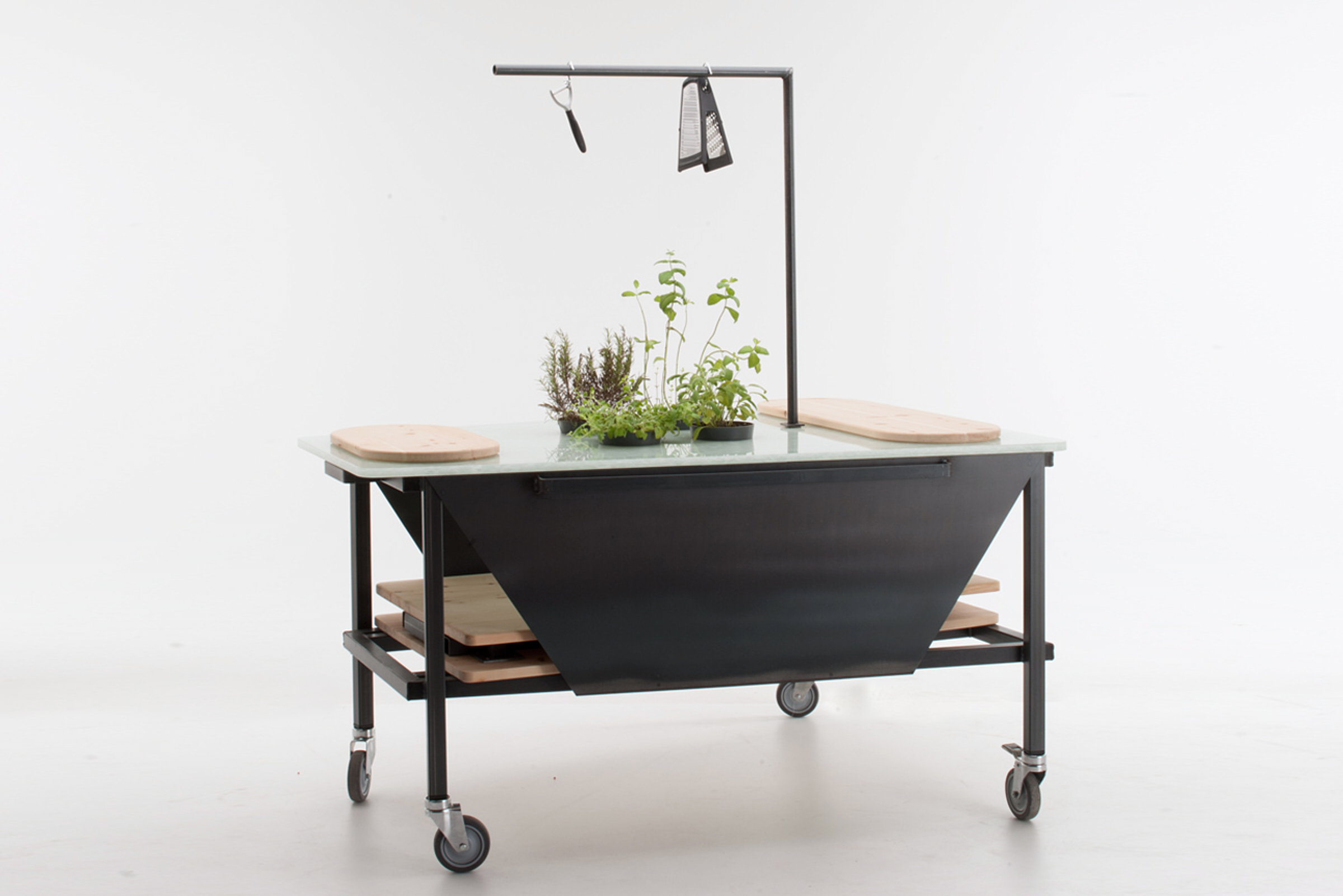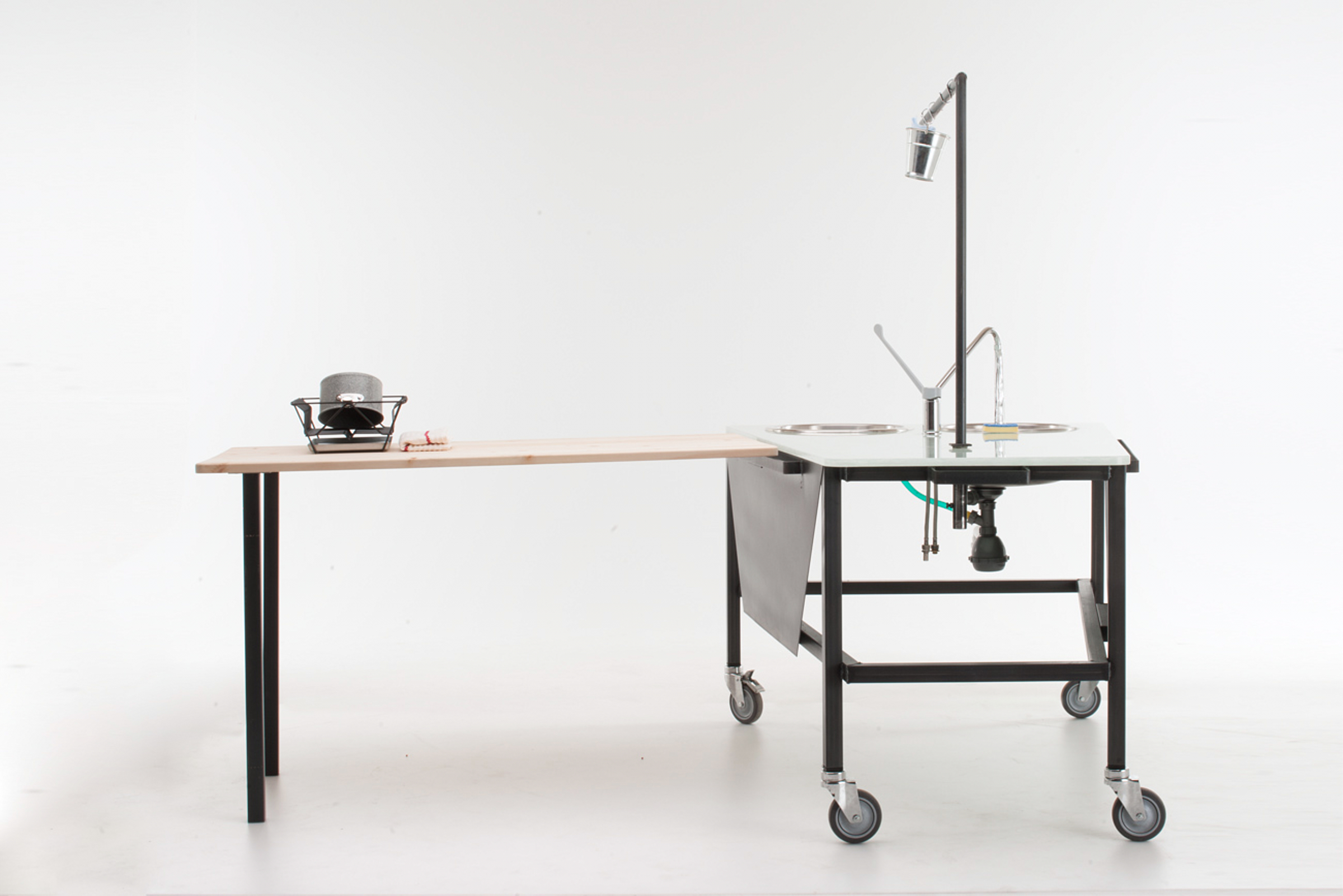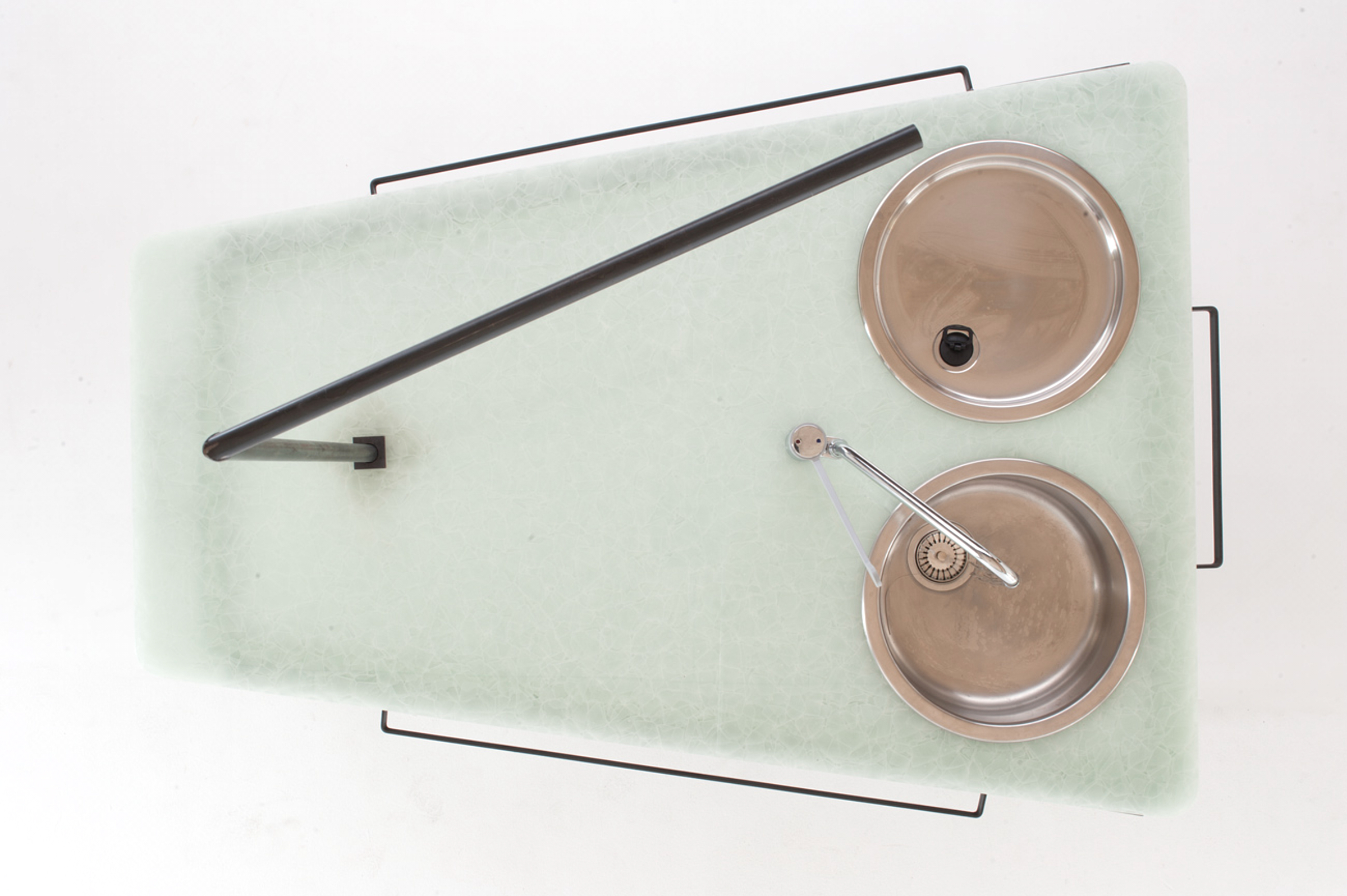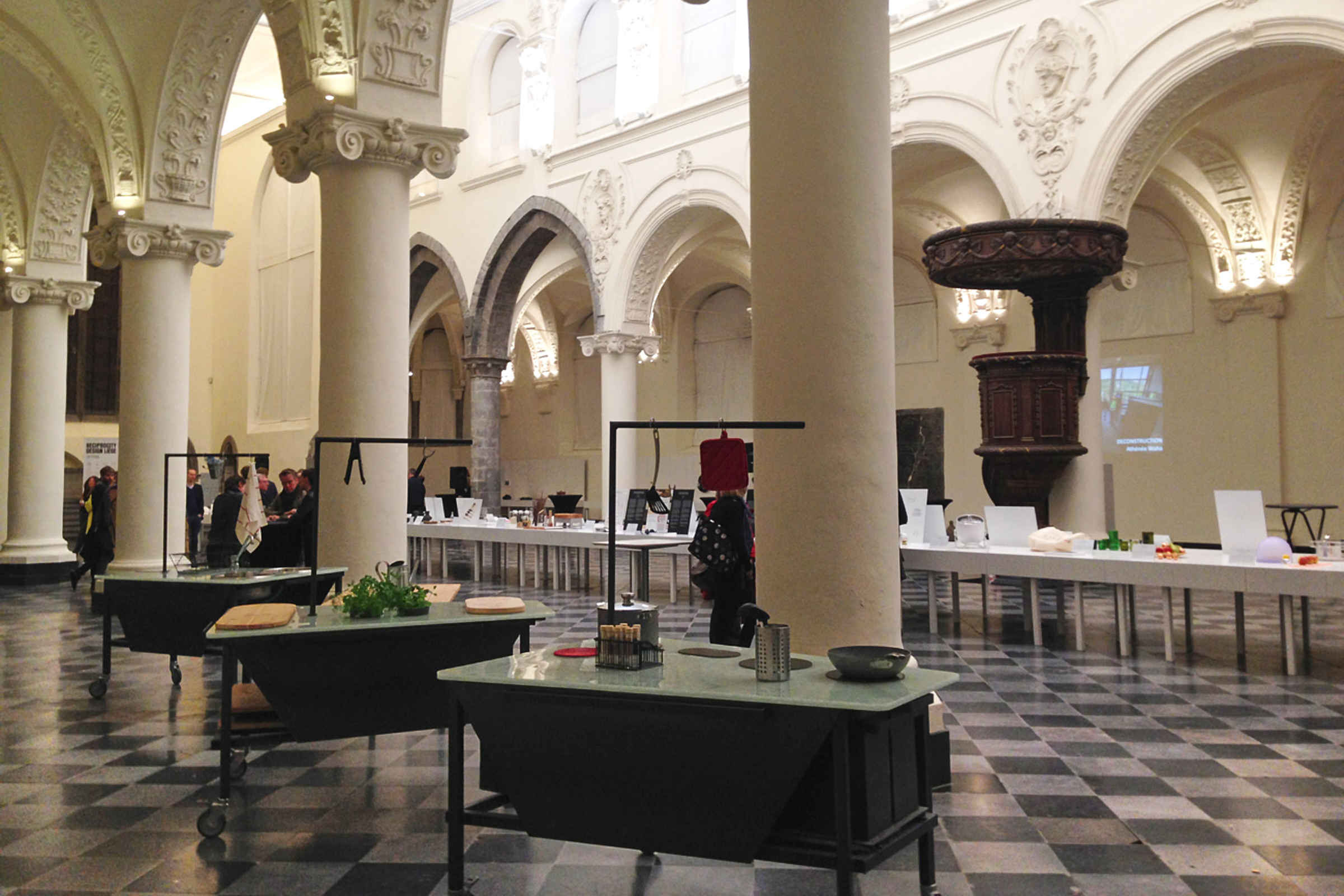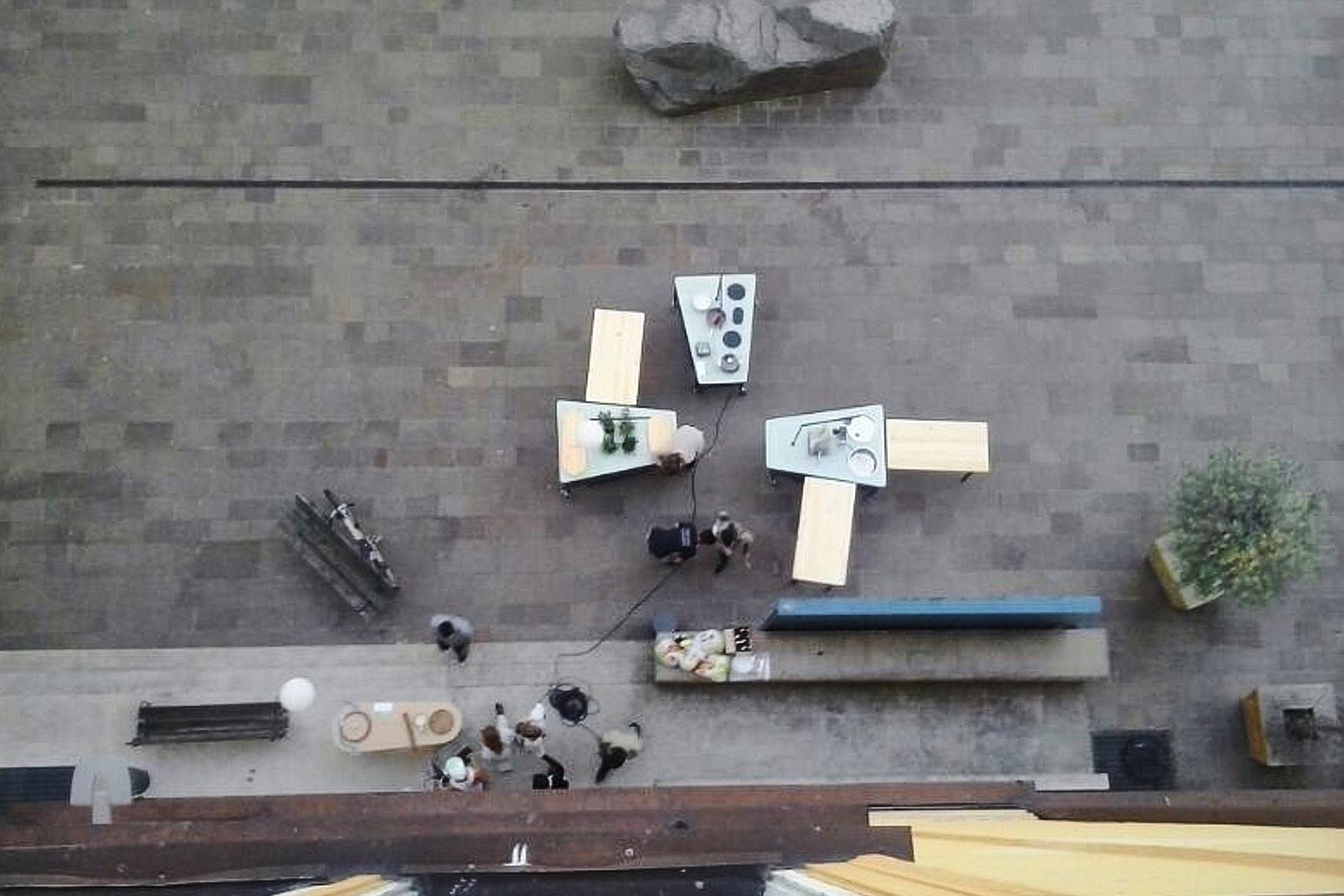Kitchen Sharing
design sociale, design dell’esperienza, installazione, design del prodotto, design dei servizi
3 moduli da cucina,
3 tavoli
Giugno 2014, Bolzano
Sponsor: Foster, Ballarini, Onitred Italia, Tecnomag, Karl Pichler e Coop. Ravinala
Esposizioni:
• Reciprocity, The Taste of Change, Triennale di Design di Liège, Belgio Ottobre 2015
La mancanza di opportunità di relazione spinge i giovani, famiglie e anziani a rifugiarsi sempre più in un mondo virtuale o nella propria dimensione privata.
Il bisogno di riappropriarsi di spazi relazionali e di restituire opportunità concrete alle persone è il contesto in cui la nostra idea prende vita.
Il progetto è in realtà estremamente semplice; il punto di partenza è:
“La ricchezza degli oggetti non è nella proprietà ma nel suo uso.”
Aristotele
La condivisione dei beni, degli strumenti e degli spazi è un punto di trasformazione sociale. Strumento contro la crisi, che ribalta il concetto diffuso nella civiltà occidentale del possesso come punto cardine del nostro essere. Inoltre, da sempre nella storia, la cucina e la tavola (il convivio) sono state il centro della relazione, un luogo-occasione di socializzazione e di incontro, un luogo di costruzione di un’identità collettiva. Kitchen Sharing cerca di rispondere ad alcune esigenze oggi fortemente presenti nella società. Si tratta di una cucina modulare, da installare in contesti pubblici, a disposizione di chiunque si trovi ad abitare, anche temporaneamente, uno spazio. E’ un progetto sociale, che punta a creare, attorno ad una cucina, un luogo di aggregazione, di appoggio, di collaborazione e di socialità.
In un momento come questo, si parla molto di cibo e di collettività (si pensi al tema dell’Expo 2015: “Nutrire il pianeta, energia per la vita”), questo progetto potrebbe essere il portavoce di una volontà di cambiamento.
Cambiamento del modo di vedere e vivere i luoghi pubblici e i beni comuni. Un servizio per i cittadini e un’occasione innovativa di condivisione.
La cucina si compone di 3 strutture modulari autonome su ruote e di 3 tavoli. Ogni modulo è stato pensato per rispondere ad un’esigenza specifica: uno favorisce l’accesso all’acqua, un altro due piani di lavoro in legno e un piccolo giardino degli aromi, L’ultimo permette di cuocere le pietanze.
Sono le tre funzioni fondamentali di una cucina, che abbiamo voluto però dislocare in tre strutture indipendenti, favorendo cosí l’utilizzo del servizio da parte di piú persone nello stesso momento.
Per la realizzazione del prototipo abbiamo fatto un’attenta selezione dei materiali da utilizzare, quanto più sostenibili, per favorire una maggiore uniformitá estetica al prodotto finale.
I telai delle tre strutture e le gambe dei tavoli sono state realizzati con tubolari di ferro brunito (40 x 40 mm), trattato antiruggine.
Le coperture laterali delle tre strutture e i due cassetti sono stati realizzati in lamiera di ferro brunito (2 mm di spessore), anch’essa trattata antiruggine. I piani delle tre strutture sono realizzati in Onitred. I tavoli e I taglieri sono stati fatti in legno di Cirmolo.
Inoltre, è un progetto che partendo da un numero limitato di pezzi, puó generare spazi sempre diversi.
The lack of relational opportunities in today’s world pushes our youth, families and elderly people to take refuge more and more in either the virtual world or in their own private dimension. Recognizing the need to help people take back their community spaces and offering them concrete opportunities to meet and know each other: that’s the context in which our idea comes to life.
The project is actually extremely simple; the starting point is that
“The value of an object is not in its property but in its use.”
Aristotle
The sharing of goods, tools and spaces is an important tool for social transformation. It can be seen as an instrument against the current crisis, which reverses the Western concept of possession as the cornerstone of our existence. Moreover, historically, the kitchen and the table (the convivius) have always been at the center of social life, representing an occasion for socializing and meeting and a place for building a collective identity.
Kitchen Sharing responds to some essential needs that are reemerging in today’s society. It is a modular kitchen, to be installed in public contexts, available to anyone who lives, even if temporarily, in a given area of the city. It is a social project, which aims to create, around a kitchen, a place of aggregation, support, collaboration and sociality. At a time like this, when we talk a lot about food and community (think of the theme of Expo 2015: “Feeding the planet, energy for life”), this project could be the spokesman for a widespread desire for change. Change in the way of seeing and experiencing public places and common goods. A service for citizens and an innovative opportunity for sharing.
The kitchen consists of 3 autonomous modular structures on wheels and 3 tables. Each module has been designed to meet a specific need: one provides access to water, another two wooden worktops and a small aroma garden, and the last one an induction stove to cook the dishes.
These are the three basic functions of a kitchen, which we wanted to place in three independent structures, thus favoring the use of the service by more people at the same time.
For the construction of the prototype we made a careful selection of the materials to be used, mostly eco-sustainable, to obtain an aesthetically pleasing result in the final product. The frames of the three structures and the legs of the tables are made of burnished iron tubulars (40 x 40 mm), coated with anti-rust.
The side covers of the three structures and the two drawers are made of burnished iron sheets (2 mm thick), also treated with anti-rust. The countertops of the three structures are made in Onitred. The tables and cutting boards are made of Cirmolo wood.
Furthermore, it is a project that, starting from a limited number of pieces, can generate endlessly changing spaces which adapt to the specific community needs.
Credits
“Kitchen Sharing” è un progetto di
M. Naomi Galavotti e Martina Ranedda.
Suggestioni sul tema:
• F. LA CECLA, La pasta e la pizza,
Il Mulino, Bologna 1998
• A. GUIGONI, La cucina di strada,
PhD Università di Siena, 2004
• E. DI NALLO, Il significato sociale del consumo, Laterza, Bari 2005
• E. MANZINI, Politiche del quotidiano. Progetti di vita che cambiano il mondo, Edizioni di comunità, Roma 2018
• Outdoor Kitchen by NINA TOLSTRUP, Studiomama, 2010
• Public kitchen by DESIGN STUDIO FOR SOCIAL INTERVENTION (ds4si), 2011
• Mobile Kitchen by ANIA ROSINKE and MARCEJ CHMARA, 2012
• F. FELLINI, Roma, 1972

